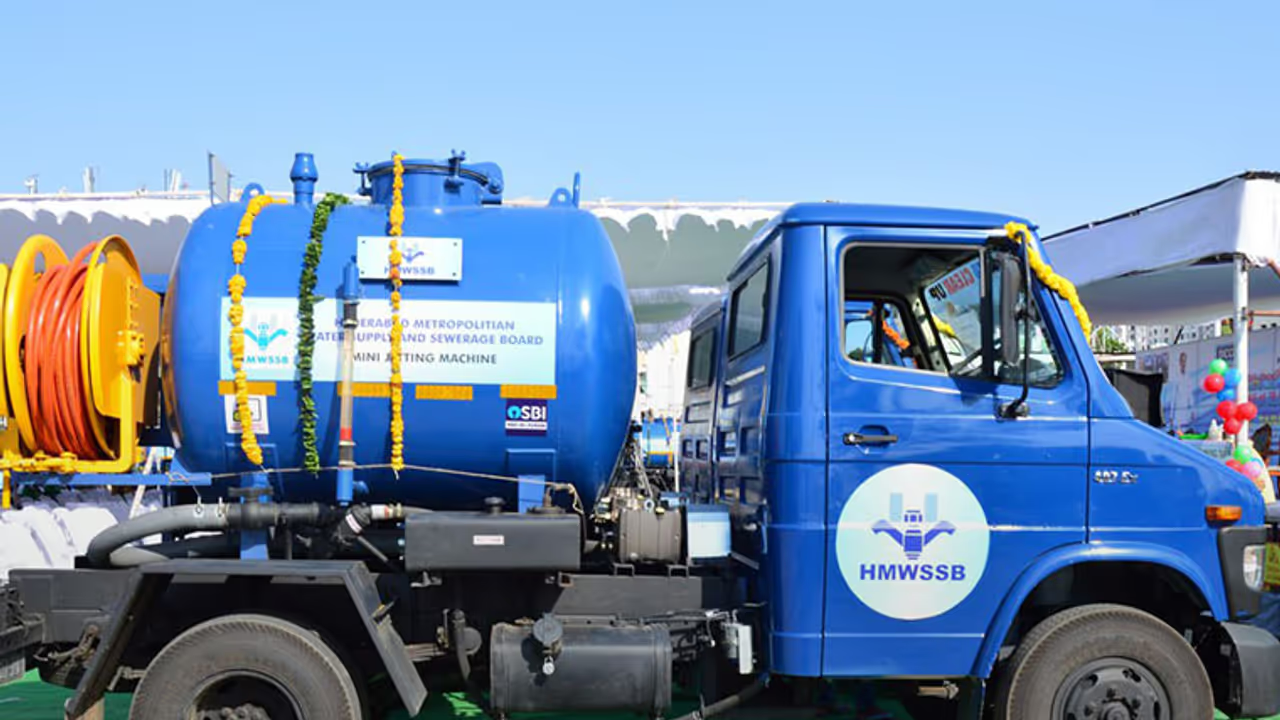KTR has launched these mini sewer cleaning machines so that manual scavenging instances are brought down greatly These machines have made the scavenging labour entrepreneurs because they will no longer be getting down into the manhole and instead will be operating them Karnataka can clearly learn from this since the BWSSB is not doing anything about it
Aiming to eliminate manual scavenging in Telangana through technology, the Hyderabad Metropolitan Water Supply and Sewerage Board (HMWS&SB) have recently deployed 70 mini jetting machines in the city. This is a move which the Karnataka government and especially the BWSSB can learn from

Telangana Municipal Administration and Urban Development Minister KT Rama Rao, who flagged off these machines at an event on Monday, said the state government, as part of its 'Swachh Telangana' programme, has adopted technology to end manual scavenging.

"Improving the working and living conditions of scavengers has been the priority for the government," Rao said, adding that he would see to it that manual scavenging ceases to exist in state. HMWS&SB, in association with the DICCI, (Dalit Indian Chamber of Commerce and Industry) inducted the 70 mini jetting machines at a cost of Rs 20 crore and the machines were handed over to the 'scavenging labour turned entrepreneurs'.

"It is an initiative conceptualised to transform manual scavengers to entrepreneurs. This move enables the elimination of manual scavenging and convert labour into an entrepreneur," DICCI Founder Milind Kamble said. "Through this initiative, we have created 70 sanitary soldiers, who have been provided with 'bacteria-free uniforms' which is done first time in India. Our aim is to create another 5,000 sanitary entrepreneurs or soldiers in the next one year across the country," he said, adding that nearly 1300 manual scavengers died in the last three years across the country.
According to HMWS&SB officials, each machine costs Rs 26 lakh. While the SBI has given a term loan of Rs 20 lakh per machine, entrepreneurs have invested about Rs 6 lakhs each. The mini vehicles can have easy access to the narrow lanes and smaller colonies to clear the choked sewer pipes (drainages).
Manual scavenging in Telangana

According to a study conducted in Telangana, over 10,000 manual scavengers work in the IT city and some of them are still on contract hoping for a permanent placement. Most of them suffer from some cancer or skin ailment because of the lack of safety gear or medical treatment post their work.
Not to mention the stigma of caste and class associated with the job. Dalits are mostly called upon to do the job and are not even accorded the dignity of their work. There is no compensation also for in case of work accidents or deaths.
Manual scavenging in Karnataka

In Karnataka safety equipment and gear for the safai karamcharis are still a distant dream. Workers are still made to enter sewers and manholes to physically clear blocks while immersed in human excrement. And despite widespread awareness campaign, protests and even deaths, the Bangalore Water Supply and Sewerage Board (BWSSB) has done nothing .
Recently in March, the BWSSB asked three labourers to get into a manhole without any safety gear and oxygen and they died of suffocation in Bengaluru. According to a 2016 report, over 59 manual scavenging deaths have been recorded in the state since 2008, but not one of them have resulted in a conviction or arrest. The report mentioned how these deaths were registered under Section 304-A, which deals with accidental deaths due to negligence, and attracted a fine or jail term of up to two years.
But no compensation, no punishment and no action has been taken in this regard. The BWSSB continues to be lax in its treatment of workers and still have no concern for the life of their crew, a case in point being the death of a storm water drain engineer who disappeared in a flash flood while cleaning a site that was supposed to be done much before the monsoons.
with PTI inputs
